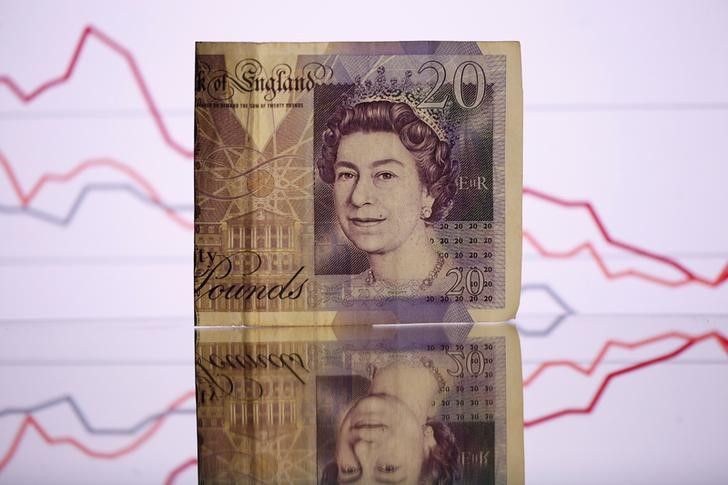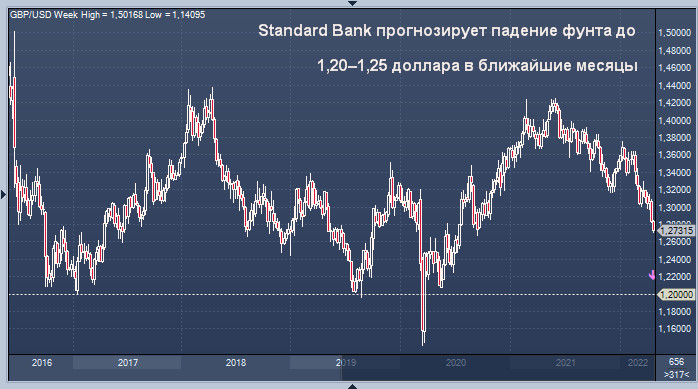
The UK currency has come under severe pressure over the past few days, barely managing to hold on to its current levels. Many experts see poor prospects for the pound sterling, while others believe GBP could still recover.
The pound sterling began its descent on Friday, April 22, when it fell to 1.2829 against the US dollar, reaching the low of September 2020. Falling living standards and an economic slump have weighed down on GBP. In this situation, the Bank of England could hike interest rates once again.
On Monday, the pound sterling lost 0.77% and fell to 1.2740. It continued to fall on Tuesday, April 26, trying to move upwards from 1.2716.
Analysts and market players are concerned by the pound's poor performance. GBP is one of the key reserve currencies, which allows the UK to attract cash flows and finance its constant external deficit. According to Standard Bank analysts, GBP is likely to slump to levels unseen since the beginning of the COVID-19 pandemic. "The dark clouds of recession are starting to hang over many advanced countries right now, but it seems to us that the UK is at greater risk than most," wrote Steven Barrow, Standard Bank's currency strategist.
Barrow noted that the negative impact of Brexit has made the UK more vulnerable to global inflation. Tight labor market, which is pushing salaries up, as well as weak sales data and the worsening energy crisis, are only exacerbating the situation. Steven Barrow predicted that GBP would fall to 1.2000-1.25000 in the near future.

Analysts are wary that the UK government would repeat its monetary policy mistakes of the 2008 global financial crisis, when the UK regulator tightened its monetary policy too quickly. According to Andrew Bailey, the governor of the Bank of England, the UK central bank is walking a fine line between fighting inflation and averting a recession.
Earlier, the IMF stated that Britain's inflationary shock combines the worst of America's problems with the worst of Europe's. The United Kingdom faces a tight labor market like the US and an energy crisis similar to the EU. This situation is hindering the UK economic recovery, putting the pound sterling is under serious pressure, intensifying bearish sentiments in the market, and increasing hedging costs.
 English
English 
 Русский
Русский Bahasa Indonesia
Bahasa Indonesia Bahasa Malay
Bahasa Malay ไทย
ไทย Español
Español Deutsch
Deutsch Български
Български Français
Français Tiếng Việt
Tiếng Việt 中文
中文 বাংলা
বাংলা हिन्दी
हिन्दी Čeština
Čeština Українська
Українська Română
Română

